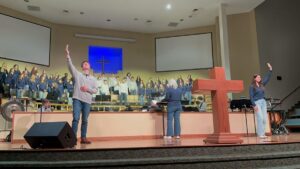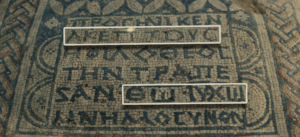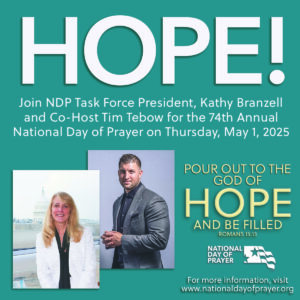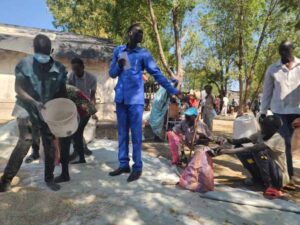
NASHVILLE, Tenn. (BP)–The direction of a Texas Baptist theological education study — and its potential financial impact on the six seminaries of the Southern Baptist Convention — may be signaled during a Sept. 7-8 committee meeting in Dallas.
According to a spokesman for the Baptist General Convention of Texas on Aug. 30, the theological study committee commissioned at last fall’s BGCT annual meeting was in the process of working toward an interim report that may include recommendations to present to the BGCT executive board’s administrative committee when it meets Sept. 7-8 in Dallas.
However, the spokesman said Sept. 6 the administrative committee’s agenda, as of Sept. 6, did not list a specific agenda item for the theological study committee’s interim report.
The spokesman said the BGCT communications office is planning to release a news report after the administrative committee concludes its two-day meeting.
The BGCT executive board will subsequently meet Sept. 26 and could formulate specific recommendations for the BGCT annual meeting Oct. 30-31 in Corpus Christi that could affect all or part of the $5 million that goes annually to the SBC’s six seminaries.
A delegation from the theological study committee visited the SBC seminaries during the last two weeks of August.
Neither the committee nor the SBC’s Council of Seminary Presidents issued statements after the visits.
The BGCT theological study committee was formed last fall “to examine the financial resources, theological positions and philosophies of Southern Baptist and BGCT-supported seminaries and report their findings to the BGCT Executive Board.”
A second study committee was formed last fall “to examine financial resources, theological positions and mission strategy and philosophy of Southern Baptist mission sending agencies [the SBC’s International Mission Board and North American Mission Board and the Cooperative Baptist Fellowship] and report their findings to the BGCT Executive Board.”
There has been considerable speculation that Texas Baptists will be urged to stop funding at least some of the SBC’s seminaries, fueled by criticisms by various BGCT leaders, some of whom support the dissident Cooperative Baptist Fellowship and who want to steer the largest state convention in the SBC away from the SBC’s more theologically conservative direction.
Pointed suggestions about defunding have been made by the current BGCT president, Fort Worth pastor Clyde Glazener, and immediate past president, Russell Dilday of Baylor University’s Truett Theological Seminary, and in recent articles in the Baptist Standard state newsjournal. No one is certain how the majority of Southern Baptists in Texas will react if such a suggestion is surfaces.
Southern Baptist Theological Seminary in Louisville, Ky., Midwestern Baptist Theological Seminary in Kansas City, Mo., and Southeastern Baptist Theological Seminary in Wake Forest, N.C., have particularly caught the ire of various BGCT leaders in recent years. For example, in 1999, then-BGCT President Dilday identified all three schools as potential targets for funding cuts.
David Currie, who heads Texas Baptists Committed, an organization hostile to the SBC and sympathetic to the CBF, told likeminded attendees at a 1998 meeting in Nashville, Tenn., that rather than sending money to Southeastern Seminary he would “rather you drive down the street and throw your money out the window, because it is more likely to be picked up and used to build the kingdom of God.” Paige Patterson, who was SBC president at the time, is Southeastern’s president.
Southern Seminary President R. Albert Mohler Jr. declined comment when asked Aug. 30 by Baptist Press about the Texas theological study committee’s visit to Southern. He also made no mention of the visit during a 45-minute address on the direction of the conservative movement in the SBC to approximately 150 students and faculty at a Theology Council symposium held at the seminary.
In a July 28 letter, Bill Crews, president of Golden Gate Baptist Theological Seminary in California and chairman of the SBC Council of Seminary Presidents, told Texas study committee chairman Robert Campbell, a Houston pastor, of a meeting the previous week in Nashville that included BGCT Executive Director Charles Wade.
“In the course of our conversation, it became clear that the ‘Baptist Faith and Message’ as adopted this June by the Southern Baptist Convention is a major focus of your consideration,” Crews wrote.
Crews went on to note that he had been told a key reason for the meetings with the seminaries was to determine whether endorsement of the revised faith statement would be made a requirement for employment at SBC seminaries.
“All six of the seminaries stand together in affirming that we will indeed make the ‘Baptist Faith and Message’ an issue of non-negotiable accountability for all who teach in our institutions,” Crews said in the letter to Campbell. He added that to do so would continue “a long-standing policy that was in place before any of the current presidents were elected to our positions of responsibility.”
The 2.7-million member BGCT rejected the 1998 version of the Baptist Faith and Message with its amendment on the family and opted to stay with the 1963 version. Wade was among a handful of known CBF supporters who spoke against the 2000 revision during the SBC’s meeting in Orlando in June.
Last fall’s BGCT action to create a theological study committee made no mention of divinity schools affiliated with the Cooperative Baptist Fellowship, such as those at Mercer University and Wake Forest universities.
Mercer President R. Kirby Godsey’s mid-1990s book, “When We Talk About God … Let’s Be Honest,” was deemed by a Georgia Baptist Convention panel as heresy, while Wake Forest has embraced the enrollment of lesbians and homosexuals. When asked by Baptist Press earlier this year if homosexuality was a sin, Bill Leonard, dean of the Wake Forest divinity school, replied, “That’s for everyone to sort out individually.”
–30–
















